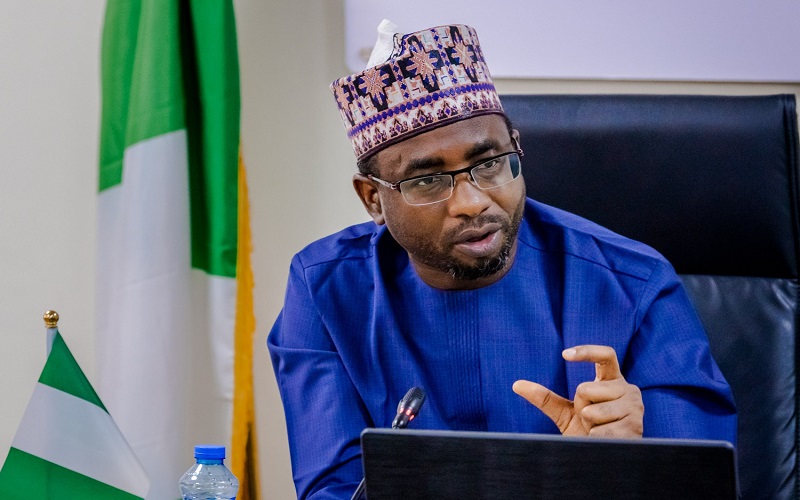Global leaders drawn from governments and international organisations joined cybersecurity experts recently at an International Conference on Cyber Diplomacy (ICCD), organised by Cyber Diplomacy Center, Bucharest, Romania, to discuss how international cyber norms that are widely accepted and followed by all actors in the digital space could be developed and promoted.
The conference comes as the world becomes increasingly interconnected and reliant on technology, with the need for robust cyber norms and confidence-building measures becoming a pressing issue.
Kashifu Inuwa, Director General, National Information Technology Development Agency (NITDA), who participated virtually during a panel session opined that the first step towards promoting the development of international cyber-norms is to increase awareness among stakeholders through conferences, seminars, workshops, and other awareness campaigns to educate people about the importance of cybersecurity and the need for international cyber norms.
The panel session had in attendance, cybersecurity experts notably, KABDESH Adiletkhan Kanatuly, Head of the Personal Data Protection Department of the Information Security Committee, Ministry of Digital Development, Innovation and Aerospace Industry, Republic of Kazakhstan; Alexandru Georgescu, Moderator WG3 on Critical Energy Infrastructures; and Gabriela Matei, Training team lead, EuroAtlantic Center for Resilience.
Inuwa noted that actors need to develop the capacity of their workforce in the cybersecurity industry to help promote the development of international cyber norms, noting that this can be achieved through training, education, and the provision of resources needed to tackle cyber threats.
He further said that International Diplomacy is another key aspect of promoting the development of international cyber norms, adding that with the ever-evolving landscape of technology and cybersecurity, it is critical for countries to establish common grounds on cybersecurity issues and advocate for the development of international cyber-norms that are widely accepted and followed by all actors in the digital space.
“There is a need to develop strong legislation to regulate cybersecurity and enforce these laws to deter cybercriminals. This will go a long way in promoting the development of international cyber-norms,” he said.
Speaking on Confidence-building Measures (CBMs) to enhance trust and prevent misunderstandings or miscalculations in cyberspace, Inuwa said CBMs can be used to enhance trust and prevent misunderstandings or miscalculations in cyberspace by promoting transparency, communication, and cooperation among stakeholders.
He said in Nigeria, the government has established several initiatives to build trust and promote transparency in cyberspace, citing one of such initiatives as the National Computer Emergency Response Team (ngCERT), which was established in 2014 to provide a coordinated response to cyber incidents in Nigeria.
The CERT works closely with other government agencies, private sector organizations, and international partners to share information and expertise on cybersecurity issues. The CERT has been instrumental in responding to cyber threats and building trust among stakeholders in Nigeria.
“Another initiative is the Cybercrime Advisory Council (CAC), which was established in 2013 to provide advice and guidance on cybersecurity issues. The CAC brings together government, private sector, and civil society representatives to share information, collaborate on cybersecurity initiatives, and promote awareness of cyber threats.
“The CAC has helped build trust and cooperation among stakeholders and facilitated the development of cybersecurity policies and guidelines in Nigeria.
“Nigeria has also been actively engaging with international partners to promote cybersecurity and adopt international cyber norms. For instance, Nigeria is a member of the African Union Cybersecurity Expert Group and the Commonwealth Cybercrime Initiative, which promote cooperation and collaboration on cybersecurity issues.
“Furthermore, Nigeria’s National Cybersecurity Policy and Strategy document provides a framework for addressing cybersecurity challenges and promoting a secure and resilient cyberspace. The policy framework recognises the importance of international cooperation and collaboration and highlights the need for Nigeria to adopt and promote international cyber norms,” he added.
While commenting on the challenges involved in implementing CBMs, Inuwa stated that there are several efforts aimed at addressing these challenges and promoting the effectiveness of CBMs.
He said that Nigeria has established several platforms for collaboration among stakeholders, such as the Cybercrime Advisory Council and the National Computer Emergency Response Team.
These platforms he said, provide opportunities for stakeholders to share information, expertise, and resources and to collaborate on cybersecurity initiatives.
He added that Nigeria is also investing in the development of cybersecurity expertise and resources, such as training programmes for cybersecurity professionals and the establishment of cybersecurity research and development centres.

